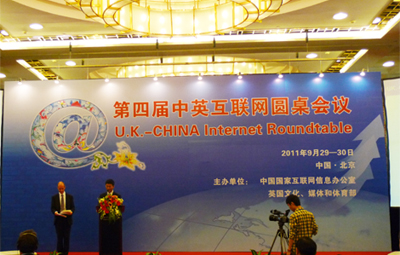Nation makes moves to increase imports
Updated: 2011-09-30 08:24
By Ding Qingfen (China Daily)
|
|||||||||
|
|
As debt crisis hurts exports, China attempts to offset the worst effects
SHANGHAI - China is studying and launching concrete measures related to tax and procedures to increase imports. The move is part of a bid to enhance the country's industrial competitiveness and balance of trade, said Zhong Shan, vice-minister of commerce on Thursday.
While the global debt crisis is hurting demand for Chinese goods and exports, "expanding imports will strengthen the competitiveness of the local industries, if appropriate moves are taken", said Zhong during a keynote speech at the China Import Forum 2011 in Shanghai.
The country is stepping up efforts to research and draft six relevant measures, including "launching preferential tax and finance policies, simplifying and reducing relevant procedures, maturing domestic circulating channels and promoting (trade) fairs", he said.
Meanwhile, the nation is also committed to optimizing the import structure, and importing more advanced technology, equipment and parts, resource-related and consumer goods in the next five years.
On Thursday, the ministry also announced the establishment of the Shanghai Waigaoqiao tariff-free zone - China's largest zone of its kind in terms of imports - as a trial area for the promotion of regional imports and trade.
China's year-on-year import growth during the first eight months has been increasing, resulting in a figure of 30.2 percent in August. Between January and August, imports grew by 27.5 percent, compared with 23.6 percent for exports.
Experts attributed the growth to the nation's rapid economic rise and huge demand from across the world, and the "strong growth momentum will continue for the rest of the year, with the growth of imports expected to surpass that of exports", said Wang Shouwen, director general of the foreign trade department.
"Without expanding imports, China cannot maintain sustainable development in foreign trade," said Zhong.
China's exporters are facing the challenge of shrinking external demand and an increasing number of trade remedy cases, especially against the backdrop of worsening economic woes in more-developed economies.
"More imports could help reduce the trade surplus and alleviate the pressures of trade protectionism," said Zhong.
The 12th Five-Year Plan (2011-2015) said the country will pay equal attention to imports and exports, expanding imports of high-tech and energy goods, and also imports from the least-developed nations and countries that run large trade deficits with China.
During the three decades since China's reform and opening-up policy, exports have registered double-digit annual growth and played a prominent role in the nation's economic growth. China overtook Germany as the world's largest exporter in 2009.
However, imports are of strategic importance to the Chinese economy, and it is estimated that they account for 46 percent of China's growth in productivity, said Zhong.
In June, the ministry said that China is expected to reduce tariffs on some selected imports of luxury goods, as a way of boosting imports.
Imports of commodities such as minerals, energy-related and agricultural goods have also risen rapidly. In 2010, 29 percent of China's imports were commodity-based, while the figure was 17 percent in 2002.
China Daily
(China Daily 09/30/2011 page13)











